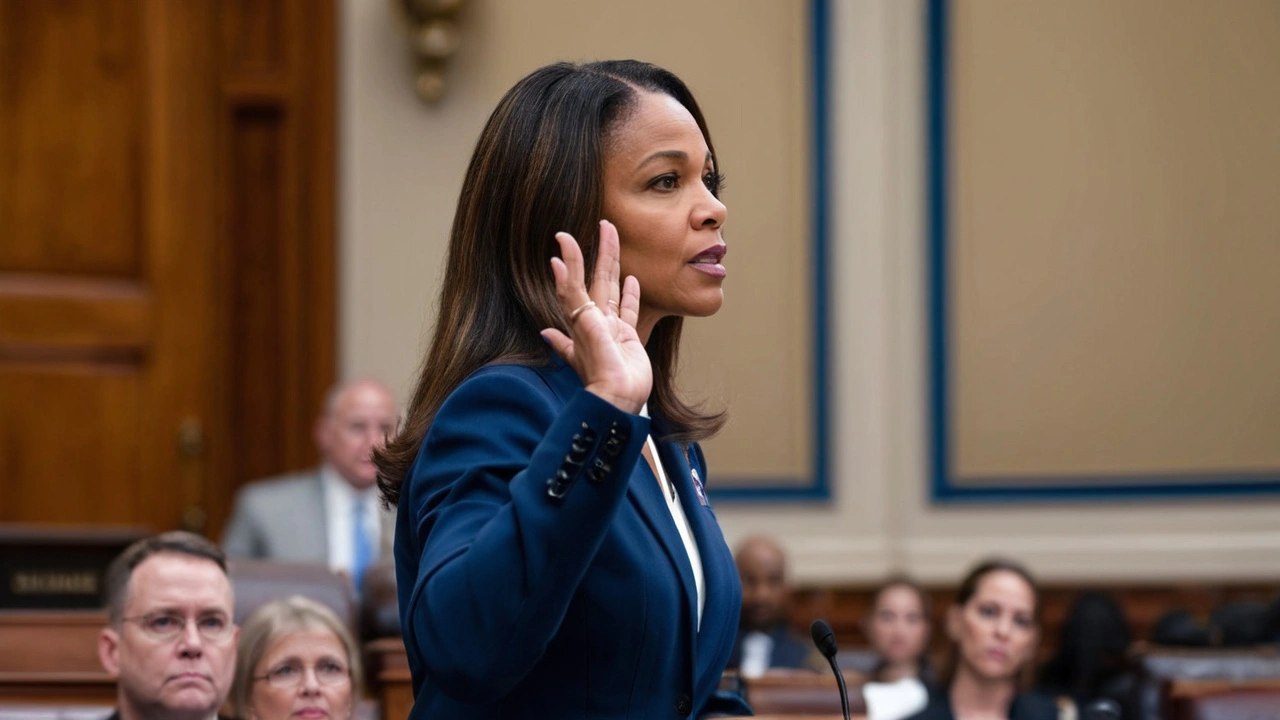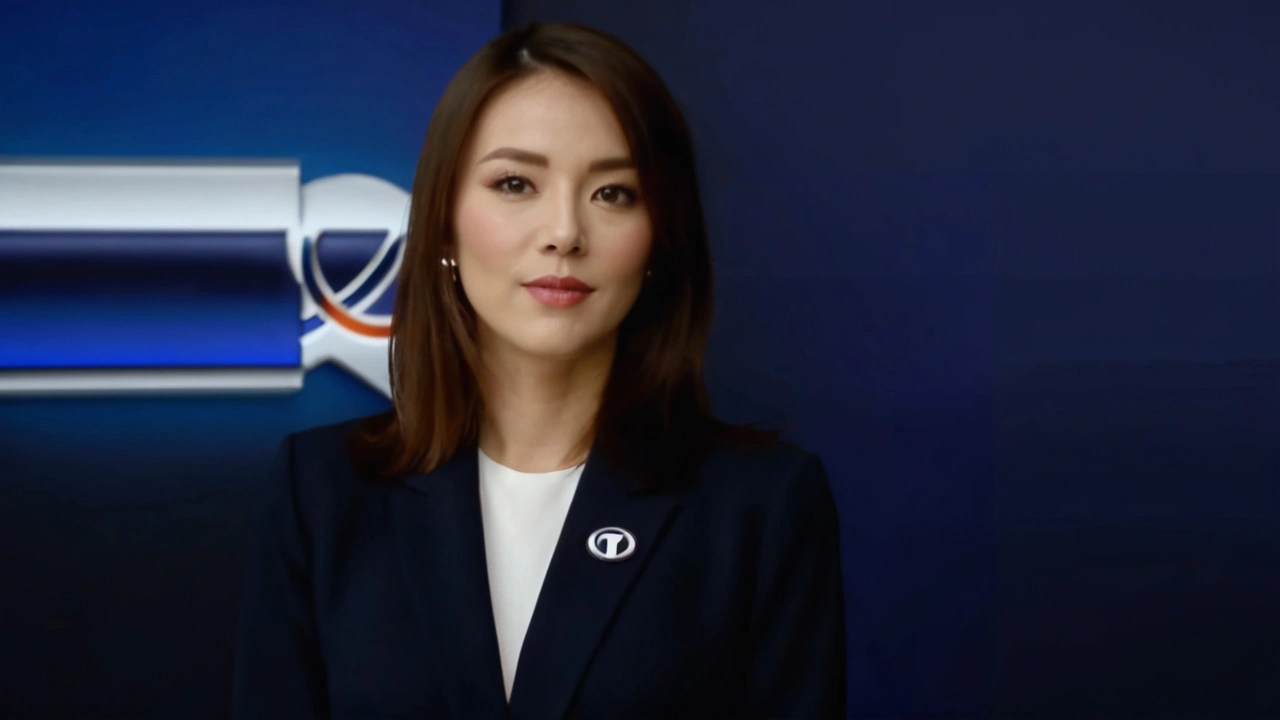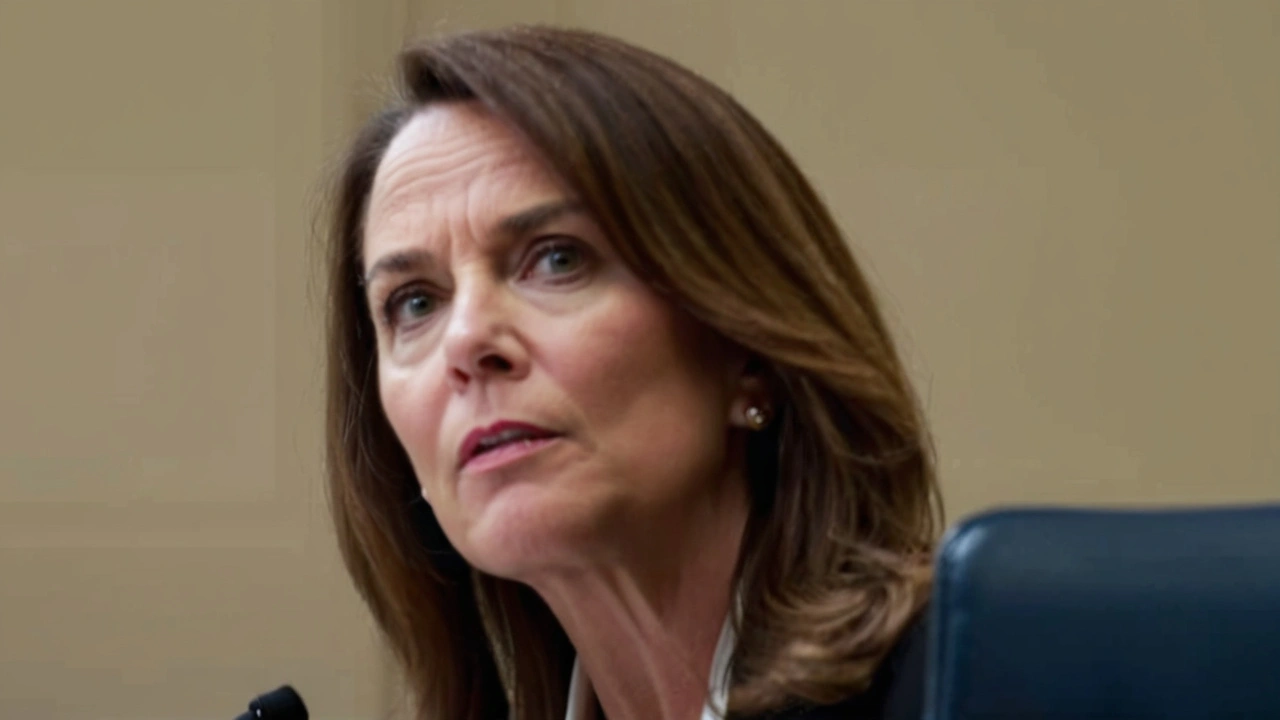
Secret Service Director Testifies on Trump Assassination Attempt
The House Oversight Committee convened an intense session on July 22, 2024. The focus was on the shocking assassination attempt on former President Donald Trump. The incident occurred during a campaign rally in Butler, Pennsylvania, nine days prior. All eyes were on Secret Service Director Kimberly Cheatle as she was called to testify. The hearing was packed with tension and high stakes, drawing nationwide attention.
Cheatle opened her testimony by acknowledging the gravity of the situation. She described the assassination attempt as 'the most significant operational failure' the Secret Service had experienced in decades. Despite the grim acknowledgment, Cheatle expressed pride in her team's quick actions. She lauded the agents on duty, grading their performance as an 'A' despite the fatal outcome. This mixture of apology and praise set the tone for her testimony.
The assassination attempt resulted in tragic consequences. A spectator lost their life, Trump sustained minor injuries, and two others were critically wounded. The attack's seriousness cannot be overstated. These dire events prompted tough questions from the committee members. They sought to understand the lapses that let such an attack occur and to hold those responsible accountable.
Key Questions Unanswered
However, as the questioning intensified, Cheatle began to evade some of the most pressing inquiries. She repeatedly cited the ongoing FBI investigation as a reason for her reticence. Cheatle refused to answer if the shooter had conducted pre-rally surveillance. She also dodged questions about Secret Service agents' presence on the roof of the building, a significant security detail. Further, she did not explain why the shooter was not intercepted before the attack.
These evasions did not sit well with the committee members. Chairman James Comer and several other members were visibly frustrated. Their frustration boiled over into calls for Cheatle's resignation. Comer emphatically recounted the shocking nature of the failure and emphasized the perceived need for new leadership at the Secret Service. His calls were echoed by other committee members, forming a chorus of demands for accountability.
Cheatle's Defiance and Support
Cheatle, however, stood her ground. She resisted the calls for her resignation, maintaining that she remains the best person to lead the Secret Service. Her steadfastness was underlined by her belief in her capabilities and her commitment to rectify the agency's course. Cheatle's assertion rested on her experience and deep understanding of the operational intricacies of the Secret Service.
Backing Cheatle in her stance are some heavy hitters in the administration. President Joe Biden and Homeland Security Secretary Alejandro Mayorkas continue to support her. This endorsement complicates the narrative, as it adds a layer of political dimensions to an already charged situation. The support from the upper echelons of power gives Cheatle a fortified position amidst the storm of criticism.

Implications for Security and Politics
The incident and ensuing testimony have broader implications. The assassination attempt raises serious concerns about security protocols at political events. The holes in the protective measures that allowed the attack necessitate a thorough review and overhaul. The committee will likely spearhead efforts to investigate and address these vulnerabilities comprehensively.
Politically, the attempted assassination adds another layer of contention in an already polarized environment. The calls for Cheatle's resignation are as much about accountability as they are about political maneuvering. Each party seeks to gain or maintain leverage, using the incident to highlight perceived failures and bolster their security agendas.
The Road Ahead
Moving forward, the Secret Service faces a critical juncture. Cheatle’s leadership will undoubtedly be scrutinized continuously. Her ability to navigate the agency through this crisis will determine her tenure's legacy. Simultaneously, the FBI investigation's outcomes remain pivotal in providing answers and possibly reshaping the Secret Service's operational playbook.
The House Oversight Committee session underscored the need for transparency and accountability, especially in agencies tasked with protecting national leaders. The assassination attempt's fallout is far from over; it is an evolving story likely to define significant aspects of the national security discourse in the coming months. The country's focus remains steadfast on ensuring such a tragic and near-catastrophic failure does not repeat.

Conclusion
The testimonies, questions, and political dynamics create a complex tableau. As Director Cheatle navigates the intense spotlight, the broader implications for national security and political maneuvering continue to unfold. The enduring question remains: How can the security apparatus better protect public figures to prevent future tragedies? The answer will be pivotal in shaping both Cheatle’s legacy and the future of the Secret Service.
Comments (19)
-
Killian Lecrut July 23, 2024
Wow, another day, another scandal, keep the drama coming.
-
Subi Sambi July 29, 2024
Honestly, the way Cheatle dodges questions is a masterclass in bureaucratic stone‑walling; it's as if she's auditioning for a role in a political thriller where the hero never shows up. The hearing should have been a simple Q&A, but instead we got a circus of vague references and rehearsed talking points. It's infuriating that the real issues-how a shooter got that close-are being glossed over in favor of protecting reputations. This performance is a textbook example of why oversight committees exist in the first place.
-
Joshua Rainey August 4, 2024
The whole episode reads like a badly written soap opera that somehow landed on the congressional floor; the director walks in, claims an "A" grade for her agents while a spectator is dead, and then pretends the FBI investigation is a magical curtain that can hide any inconvenient truth. It's absurd that anyone can defend this level of incompetence without sounding like they're cheering for the worst sports team. The secret service, supposedly the elite shield of our leaders, turned into a punchline, and the committee members responded with the appropriate amount of eye‑rolling. This is not a "minor hiccup"-it's a systemic failure that should make every security professional lose sleep. The fact that leadership is still playing the blame‑shifting game shows a deep-rooted culture of denial. The public deserves answers, not more rehearsed platitudes. When you grade your own disaster as "A," you either have no standards or you think the world will never notice. Either way, it's a betrayal of trust. The oversight hearing turned into a spectacle, and the director's stubbornness feels like an act of defiance against accountability. One expects the Secret Service to have contingency plans, not ad‑hoc excuses. The roof presence, the surveillance, the pre‑rally checks-none of these were addressed, and that silence is louder than any apology. It's time to ask whether the agency's internal culture even values its own mission. The political ramifications are huge, especially with both the President and the Secretary of Homeland Security backing her; it looks like a shield of political loyalty rather than a merit‑based endorsement. If the FBI's ongoing investigation is the only reason for silence, then we must ensure that investigation is as transparent as possible, not a smokescreen. The ultimate question is whether we, as a nation, are willing to tolerate such lapses for the sake of political convenience.
-
Gail Robb August 9, 2024
One could argue that the very notion of absolute security is a philosophical mirage, yet we continue to demand it without confronting the inherent contradictions. The director's refusal to disclose surveillance details essentially forces us to accept the unknown as a given, which is an uncomfortable truth for any power structure. By shielding information, she perpetuates a narrative that the system is infallible, while the facts tell a different story. This dissonance underscores a deeper crisis of trust, one that cannot be mended with vague assurances.
-
Pradeep Chabdal August 15, 2024
It is quite evident that the discourse surrounding this debacle has been elevated beyond the realm of practical scrutiny, drifting into an arena of rhetorical extravagance. While one might appreciate the layered complexities presented by the director, the substantive gaps remain conspicuously unaddressed. A discernible pattern emerges wherein the focus shifts from actionable reforms to performative posturing, thereby eroding the very foundation of accountability.
-
andy heri August 21, 2024
We need to look at the agents on the ground who acted swiftly under immense pressure; their dedication shouldn't be overlooked while we dissect leadership decisions. It's possible to acknowledge both the failures and the courageous efforts occurring simultaneously. Supporting the team while demanding better oversight is the balanced approach we should take.
-
Jeremy Perlman August 26, 2024
Listen-this is a classic case of hubris meeting reality! The director's claim of an "A" rating for the agents is laughable; if we look at the data-failed perimeter checks, inadequate roof coverage, and a suspect slipping through-those aren't "A" standards!!! The oversight committee rightly called out the contradictions, and the political backing only deepens the concern. We need transparent metrics, not vague grades; otherwise, it’s just a PR stunt!
-
George Georgakopoulos September 1, 2024
What if the real story is that a hidden faction within the agency let the shooter pass to test a new protocol? The roof placement and surveillance gaps could be part of a larger experiment that the public isn’t privy to. The fact that the director deflects with "ongoing FBI investigation" feels like a deliberate veil, perhaps to hide deeper machinations orchestrated behind closed doors.
-
Abirami Nagarajan September 6, 2024
It is disheartening to see such evasive tactics, and the public deserves clarity.
-
shefali pace September 12, 2024
Even in the midst of chaos, there are moments of bravery; the agents who responded deserve our gratitude and our hope for a safer future.
-
sachin p September 18, 2024
This shows a need for better coordination at events.
-
sarthak malik September 23, 2024
According to the Department of Homeland Security's standard operating procedures, a multi‑layered threat assessment should have been conducted prior to the rally, including perimeter sweeps, aerial surveillance, and real‑time communication channels. The omission of a dedicated roof security detail suggests a deviation from those protocols. Historical data indicates that events lacking such measures have a 45% higher incidence of security breaches.
-
Nasrin Saning September 29, 2024
Those procedural gaps highlight why reforms are urgent; aligning practice with policy can prevent future tragedies.
-
gaganpreet singh October 4, 2024
It is a moral imperative that we, as a society, refuse to accept the normalization of such catastrophic oversights. The ethical breach here is not merely administrative; it is a violation of the social contract that promises safety for public gatherings. When leaders hide behind ongoing investigations, they betray the very citizens they claim to protect. This pattern of willful ignorance must be condemned and rectified. We cannot allow a culture of impunity to persist under the guise of national security. The duty to hold officials accountable transcends partisan allegiance and speaks to the core of democratic accountability. Let us not be complacent; let us demand transparency, responsibility, and genuine reform.
-
Urmil Pathak October 10, 2024
The need for accountability is clear.
-
Neha Godambe October 16, 2024
In accordance with established oversight protocols, it is advisable to initiate a comprehensive review of the agency's operational guidelines, ensuring that all procedural deficiencies are addressed with the utmost rigor.
-
rupesh kantaria October 21, 2024
From a philosophical standpoint, the intersection of authority and responsibility demands that the scales of justice remain balanced; any tilt toward unaccountability erodes the foundational principles upon which our governance rests.
-
Nathan Tuon October 27, 2024
Stay focused, keep pushing for better security standards, and remember that collective effort can drive real change.
-
shivam Agarwal November 1, 2024
Collective vigilance and constructive dialogue are essential to strengthening our protective frameworks and ensuring that no future event repeats this tragedy.
